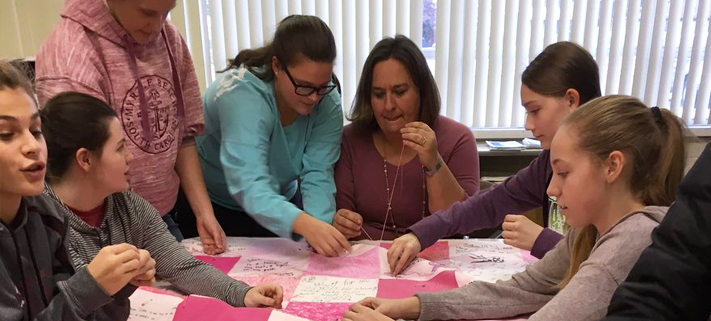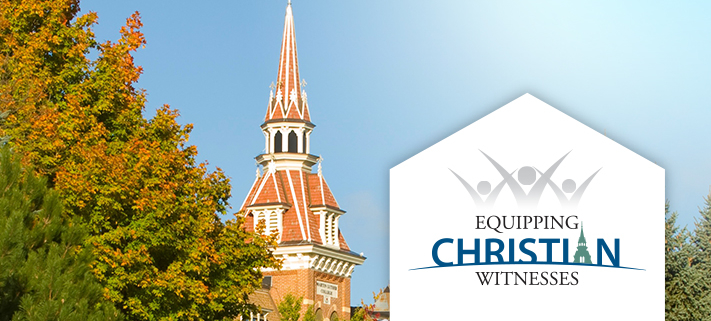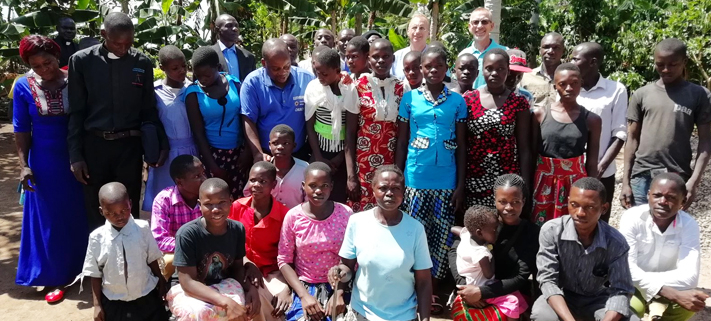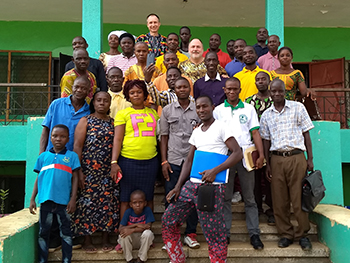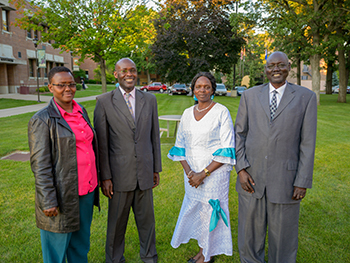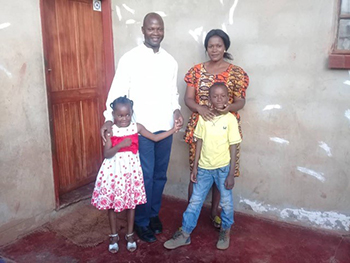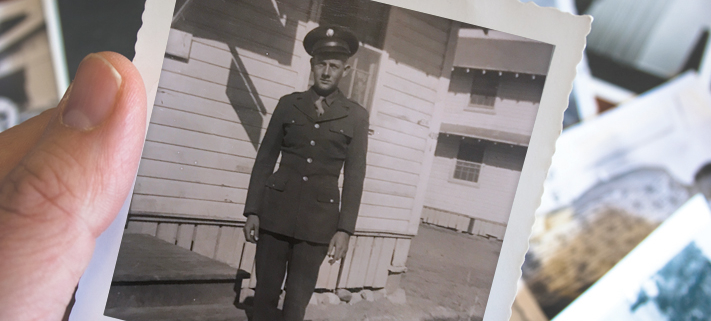Wrapped in God’s comfort
At the end of a long day, many enjoy burrowing beneath their blankets to receive rest and comfort. For some, a blanket or quilt can mean more than just physical relaxation; it can also encompass emotional and spiritual rest. Comforter Ministry, started by Susanne (Su) Hanson, fulfills a unique opportunity to bring peace to women with cancer through quilts and the message of God’s Word.
Su began the Comforter Ministry in 2005 after her own experience with ovarian cancer. She still vividly remembers the emotions she felt after receiving a quilt of her own as a gift.
“I remember being wrapped in the comforter and feeling God’s love in a tangible way,” she says. “His love was physically wrapped around me.”
The ministry began with just three volunteers and has since grown to include 124 quilters in 20 different states. Comforter Ministry accepts quilts as well as monetary donations to help offset costs from sending women their boxes.
One of Comforter Ministry’s recent donations came from Huron Valley Lutheran High School, Westland, Mich. What started as an opportunity to give back through a “Pink Out” volleyball game in 2018 turned into an impactful experience for an entire community.
Brian Kasten, Huron Valley Lutheran High School’s athletic director at the time, found Comforter Ministry after searching for WELS charities that helped cancer patients.
“Brian told me he ran across our page and that he wanted our ministry to be the recipient of the Pink Out Night’s proceeds,” Hanson explains. “Then after the event he contacted me to tell me the proceeds of the game were more than expected. I was so overjoyed because each donation is so important. This is how God moves hearts.”
Hanson also found out that this incredible gift went a step further when Gwynn, a passionate supporter of Huron Valley, got involved with the project. After reading about the Pink Out Night, Gwynn approached the school’s staff about creating a quilt of their own to donate. The girls on the volleyball team were thrilled to help with the project.
“These girls have hearts of gold,” Gwynn said. “They’re always willing to help and will take any idea you have and just run with it. It’s a joy to be around them.”
To start, she gave the girls pink patches. They filled the small squares with encouraging Bible verses and intricate drawings. When Gwynn received the patches back, she was overwhelmed with the beautiful messages that the girls wrote. And even more incredible—there were enough patches to create two quilts!
Gwynn recruited three women to help her assemble the quilts. When they were finished, one quilt went to Comforter Ministry and the other went to the mother of a young woman who recently graduated from Huron Valley. After receiving her quilt box, this mother simply hugged the box in her arms, knowing what was inside.
“This event affected a lot of people, more than we even realized,” Kasten says. “The fact that we could show God’s love and his comfort in this way is truly incredible.”
Gabriella Blauert
Learn more about the Comforter Ministry at comforterministry.com.
SUBMIT YOUR STORY
Do you have a manuscript, idea, or story from your own life you’d like to share for use in Forward in Christ or on wels.net? Use our online form to share it to our editorial office for consideration.
SUBSCRIBE TO FORWARD IN CHRIST
Get inspirational stories, spiritual help, and synod news from Forward in Christ every month. Print and digital subscriptions are available from Northwestern Publishing House.
Author: Gabriella Blauert
Volume 106, Number 11
Issue: November 2019
Copyrighted by WELS Forward in Christ © 2021
Forward in Christ grants permission for any original article (not a reprint) to be printed for use in a WELS church, school, or organization, provided that it is distributed free and indicate Forward in Christ as the source. Images may not be reproduced except in the context of its article. Contact us

